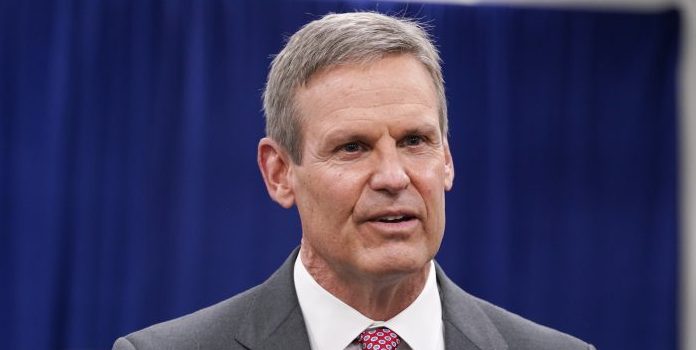(Casey Harper, The Center Square) A series of red states around the country are turning away federal supplemental funding for unemployment benefits, saying it is hurting their state economies and encouraging potential workers to stay home rather than return to the workforce.
Georgia‘s Republican Gov. Brian Kemp announced Thursday the state would no longer accept the $300 weekly federal unemployment payments, the latest state to reject the federal help and blame the additional benefits as a driving factor that is keeping Americans from going back to work.
“What I’m seeing on the ground here is that every small business owner and the workers that are currently working, they need more people,” Kemp said when announcing the decision on Fox News. “It is hurting our productivity, not only in Georgia, but across the country. We’ve got to get more people into the workforce.”
So far, at least 12 states are taking steps to ween off the benefits. Tuesday, Iowa and Tennessee joined the growing number of Republican-led states turning away the federal unemployment assistance.
“Federal pandemic-related unemployment benefit programs initially provided displaced Iowans with crucial assistance when the pandemic began,” Iowa Republican Gov. Kim Reynolds said. “But now that our businesses and schools have reopened, these payments are discouraging people from returning to work.”
Arkansas, Alabama, Mississippi, Missouri, Montana, North Dakota, Idaho, South Carolina, and Wyoming have announced they will stop accepting some measure of federal unemployment benefits. The states vary on what date they will transition.
“Wyoming needs workers, our businesses are raring to go,” Wyoming Gov. Mark Gordon said. “I recognize the challenges facing Wyoming employers, and I believe it’s critical for us to do what we can to encourage more hiring. Federal unemployment programs have provided short-term relief for displaced and vulnerable workers at a tough time, but are now hindering the pace of our recovery. People want to work, and work is available. Incentivizing people not to work is just plain un-American.”
The Federal Pandemic Unemployment Compensation program paid $300 in weekly unemployment benefits on top of state unemployment payments. Combined, the weekly payments have been more than enough for some Americans to live on without seeking work, especially in some rural areas with lower costs of living, critics argue.
More governors withdrew from the federal funding after economic data released last week showed a spike in unemployment. The Bureau of Labor Statistics released data showing unemployment spiked to 6.1% last month. The economy created 266,000 nonfarm jobs in April, far fewer than the 1 million jobs economists predicted.
Critics say the ongoing stimulus payments and beefed up unemployment benefits are to blame, incentivizing Americans not to look for work.
“What was intended to be a short-term financial assistance for the vulnerable and displaced during the height of the pandemic has turned into a dangerous federal entitlement, incentivizing and paying workers to stay at home rather than encouraging them to return to the workplace,” South Carolina Republican Gov. Henry McMaster wrote in a letter to the state’s Department of Employment and Workforce.
While Georgia is the latest state to turn away the federal funds, many experts expect it won’t be the last.
Tennessee Gov. Bill Lee did the same Tuesday, announcing the plan would be done in Tennessee before Independence Day.
“We will no longer participate in federal pandemic unemployment programs because Tennesseans have access to more than 250,000 jobs in our state,” Lee said. “Families, businesses and our economy thrive when we focus on meaningful employment and move on from short-term, federal fixes.”
The White House has pushed back against the claim the federal unemployment benefits are to blame for increased unemployment.
“We’re not seeing this as the root cause, driver of people not seeking work,” White House Press Secretary Jen Psaki told reporters. “Of course, we’re going to see anecdotal examples. We certainly recognize that.”
But some critics disagree, saying the program has disincentivized many Americans from going back to work.
“A lot of evidence suggests the high supplemental unemployment benefits are discouraging work,” said Ryan Bourne, an economic expert at the Cato Institute. “The teenage employment rate – those least likely to be eligible for benefits – has fully recovered, while the employment recovery among the adult population has been slower than expected. Around 40 percent of Americans are better off out of work than in work given the $300 benefit supplement added to the normal benefits. It’s not the only factor.
“Signs of labor shortages are all around, so it’s unsurprising that many states are deciding to neuter this disincentive by ending the program and, in some cases, even introducing a rehiring bonus,” he added…Original Source…

